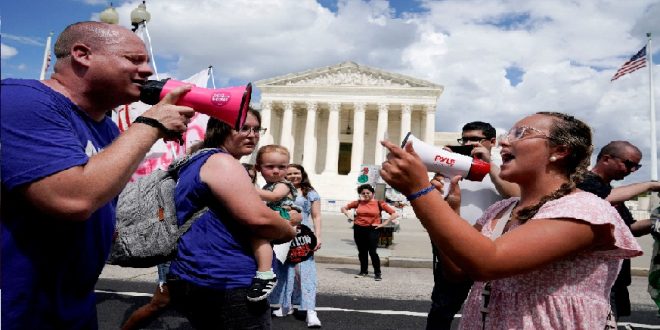01-01-2024
CAROLINA/ GEORGIA: The legal landscape surrounding abortion has been roiled by uncertainty since the U.S. Supreme Court last year overturned its landmark 1973 Roe v. Wade ruling, which had guaranteed abortion rights nationwide.
 Abortion providers and reproductive rights groups have brought a slew of lawsuits seeking to invalidate new bans and abortion restrictions that went into effect in many Republican-led states after Roe fell, invoking women’s rights under state constitutions. The cases often resulted in preliminary victories followed by whiplash reversals on appeal, leaving providers and patients in limbo.
Abortion providers and reproductive rights groups have brought a slew of lawsuits seeking to invalidate new bans and abortion restrictions that went into effect in many Republican-led states after Roe fell, invoking women’s rights under state constitutions. The cases often resulted in preliminary victories followed by whiplash reversals on appeal, leaving providers and patients in limbo.
Many of those frontal challenges have now been decided by state supreme courts, which have upheld abortion bans in South Carolina, Indiana, Georgia and elsewhere.
Of course, the initial wave of litigation is not over. Some of the state challenges – like Florida’s are still awaiting rulings. In another notable case with nationwide implications filed by conservative activists in 2022, the U.S. Supreme Court is considering whether to roll back access to the abortion pill mifepristone.
Nonetheless, there has been a shift in the litigation, away from the broad, head-on challenges and toward narrower issues arising from the bans. A newer wave of lawsuits has focused on when emergency medical exceptions to abortion bans apply and whether states can stop their citizens from traveling to states where abortion remains legal, a trend experts expect to continue in the New Year.
 All of the 18 states that have banned or sharply restricted abortion allow exceptions for medical emergencies when continued pregnancy would endanger the mother’s life, or, in some states, health but in practice, according to allegations in multiple lawsuits and public testimony from women, those exceptions are often unavailable because the laws are so vague that physicians are not sure when they apply, and so are unwilling to perform abortions for fear of prosecution.
All of the 18 states that have banned or sharply restricted abortion allow exceptions for medical emergencies when continued pregnancy would endanger the mother’s life, or, in some states, health but in practice, according to allegations in multiple lawsuits and public testimony from women, those exceptions are often unavailable because the laws are so vague that physicians are not sure when they apply, and so are unwilling to perform abortions for fear of prosecution.
The issue received widespread national attention in December when the Texas Supreme Court ruled against Kate Cox, a Dallas Fort-Worth area woman who had sought an emergency medical abortion of her nonviable pregnancy. While that decision only applied to Cox, the state court is still considering another case about the scope of the medical exception that will apply more broadly.
“It’s becoming increasingly clear to the American public that there are a lot of scenarios in pregnancy where people need access to abortion” but can’t get one, said Elizabeth Sepper, a professor of health law at the University of Texas at Austin.
Data suggests that many women seeking abortion in states where it is banned, for medical or other reasons, travel out of state, like Cox did while she was awaiting the Texas Supreme Court’s ruling. According to the Guttmacher Institute, a research group that supports abortion rights, about 92,100 women crossed state lines for an abortion in the first half of 2023 more than double the number in a six-month period in 2020. (Int’l News Desk)
 Pressmediaofindia
Pressmediaofindia




